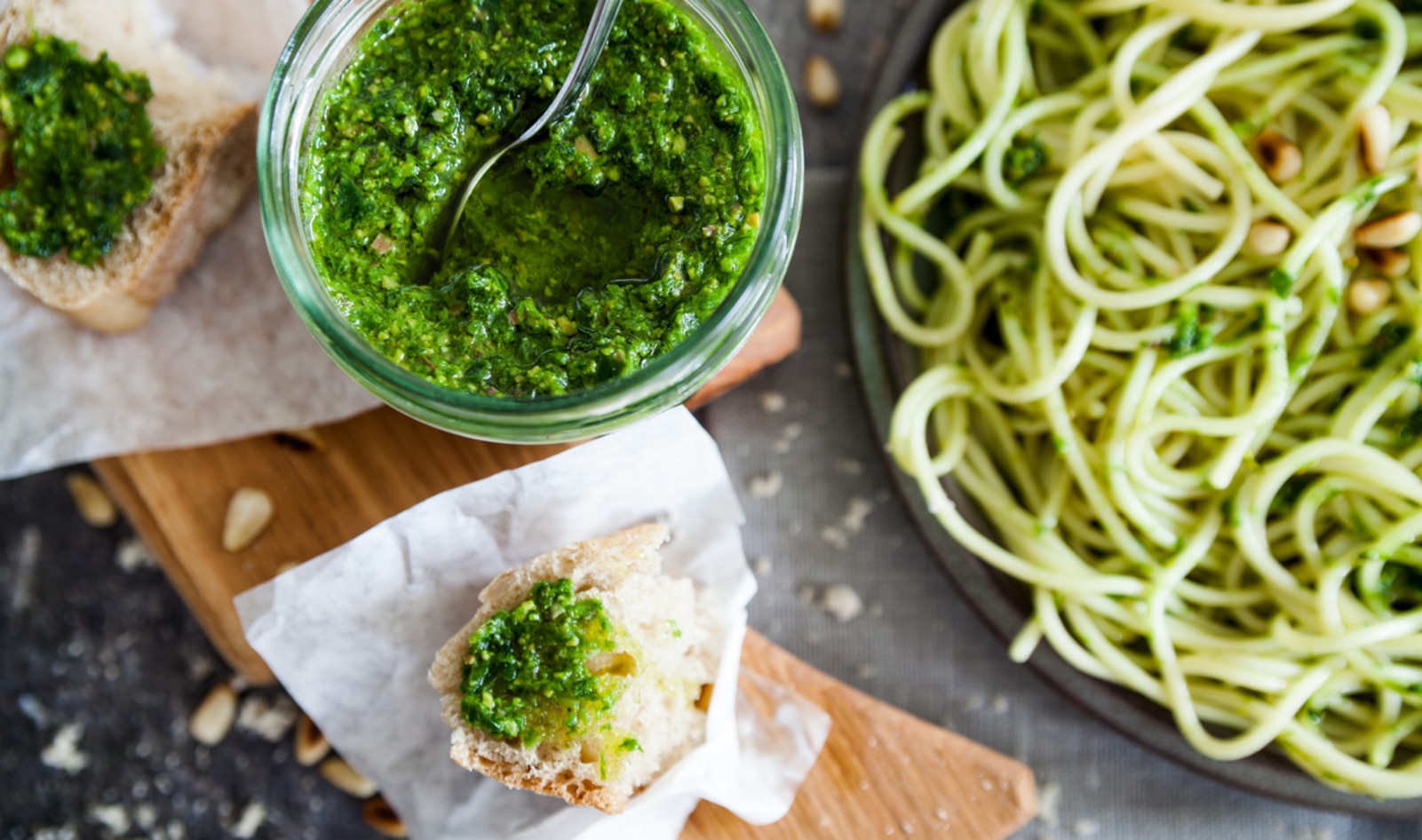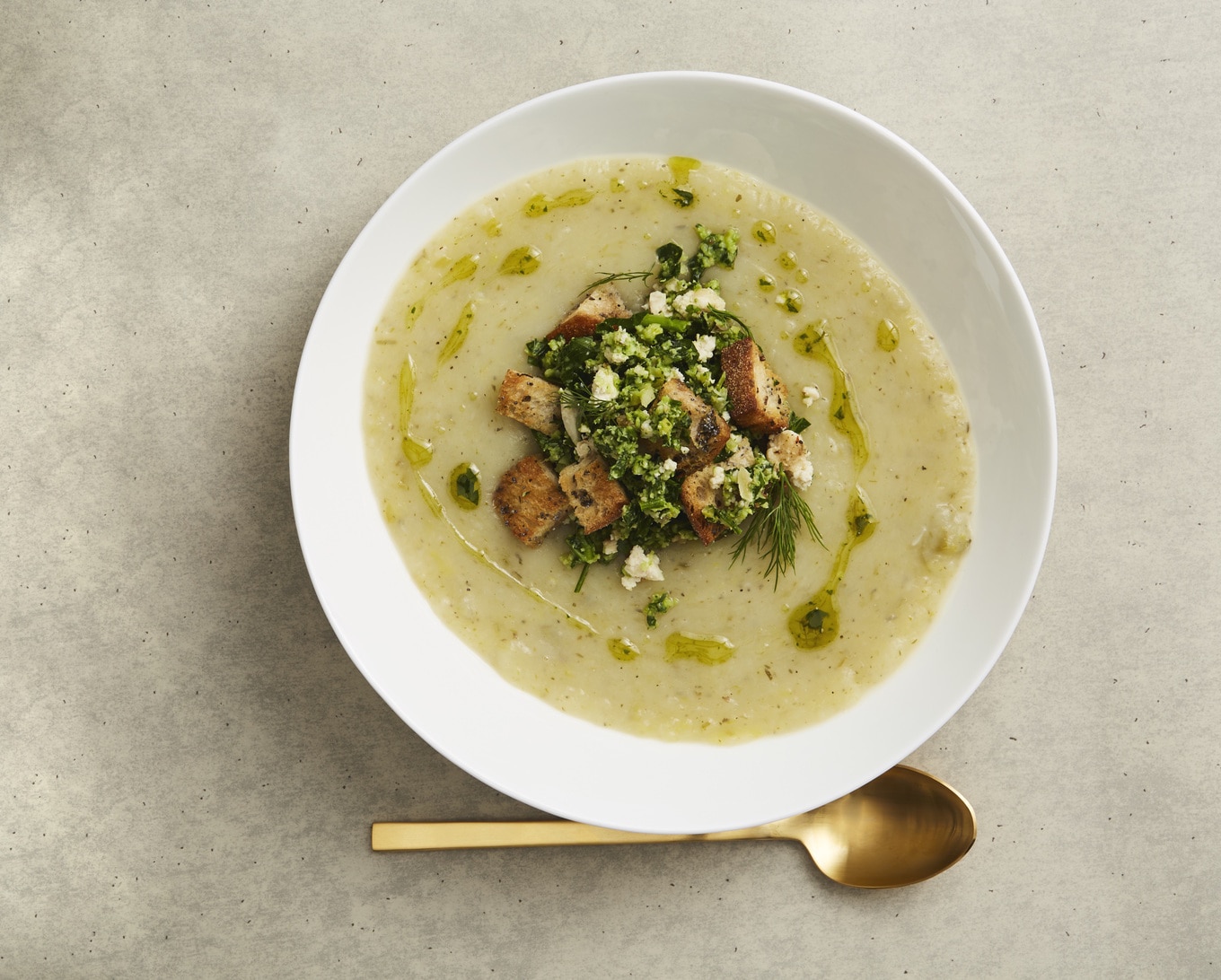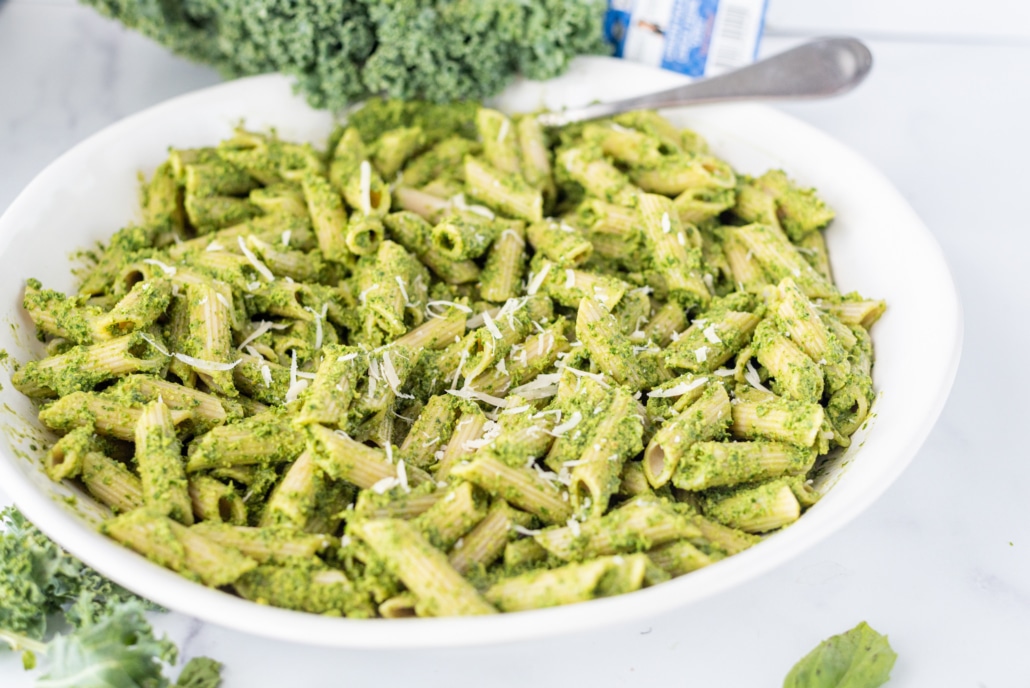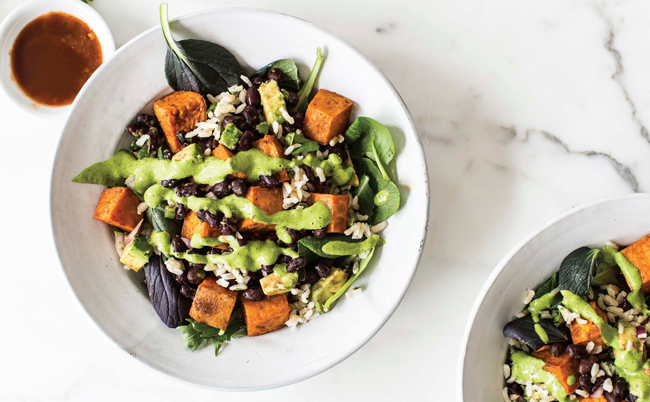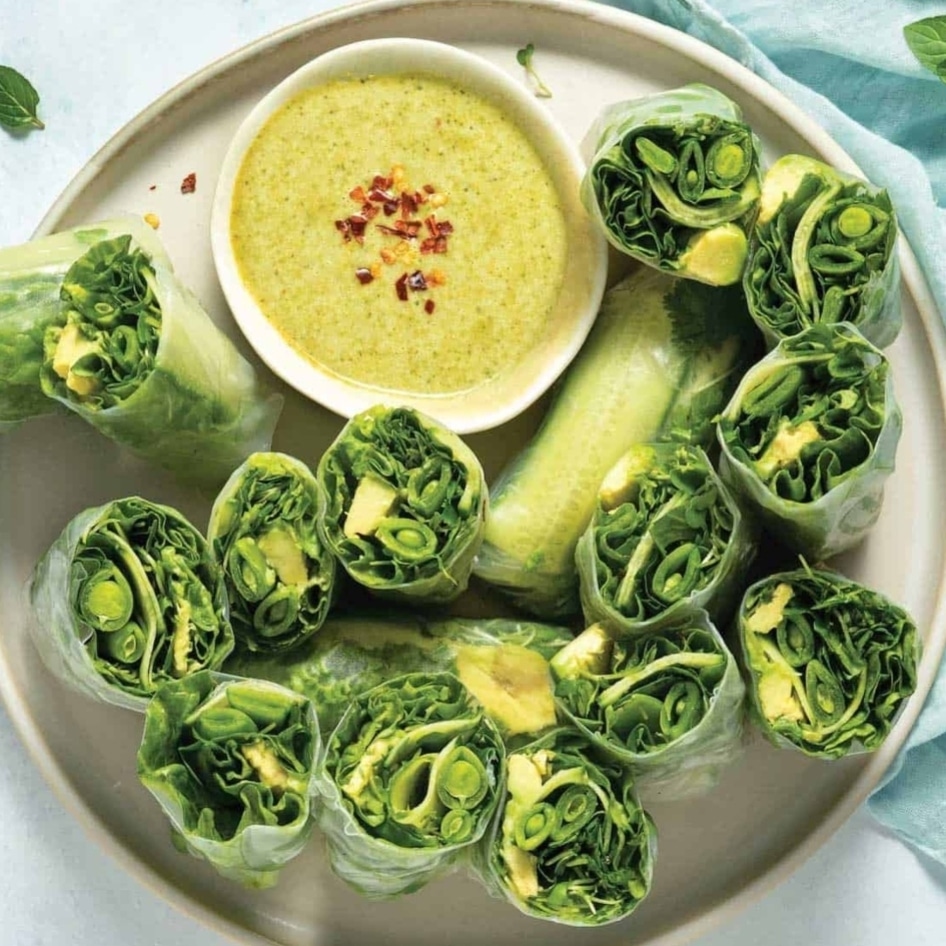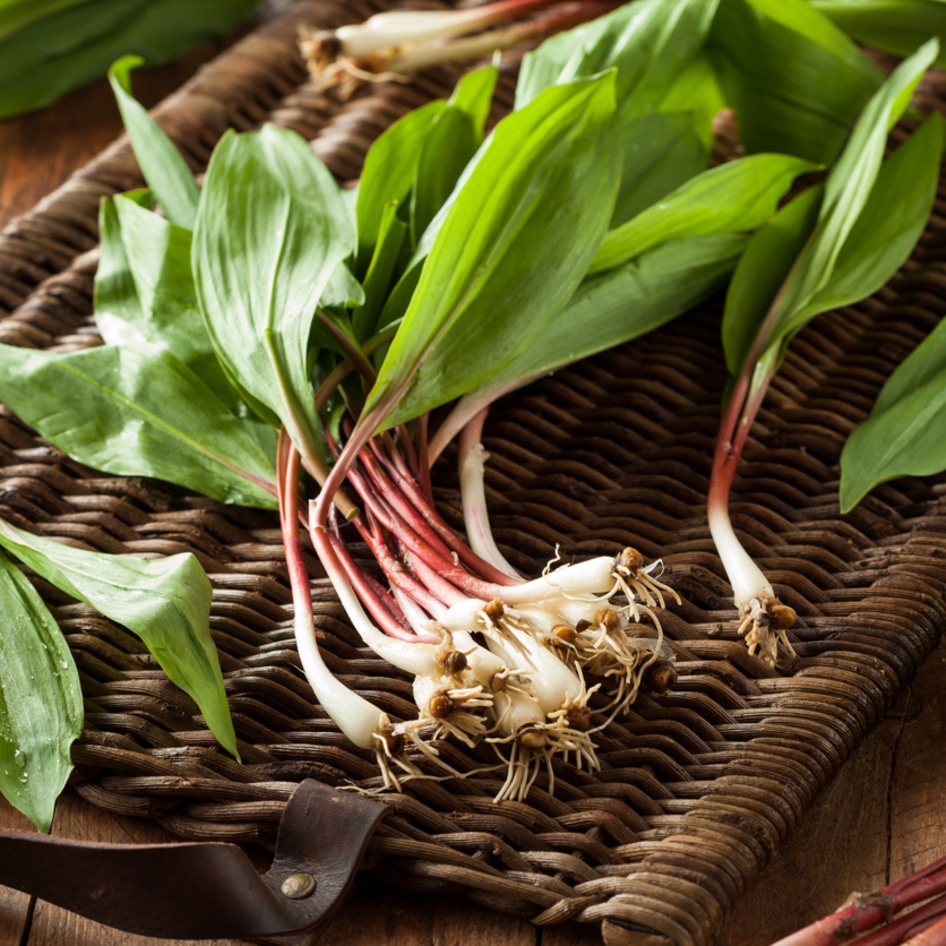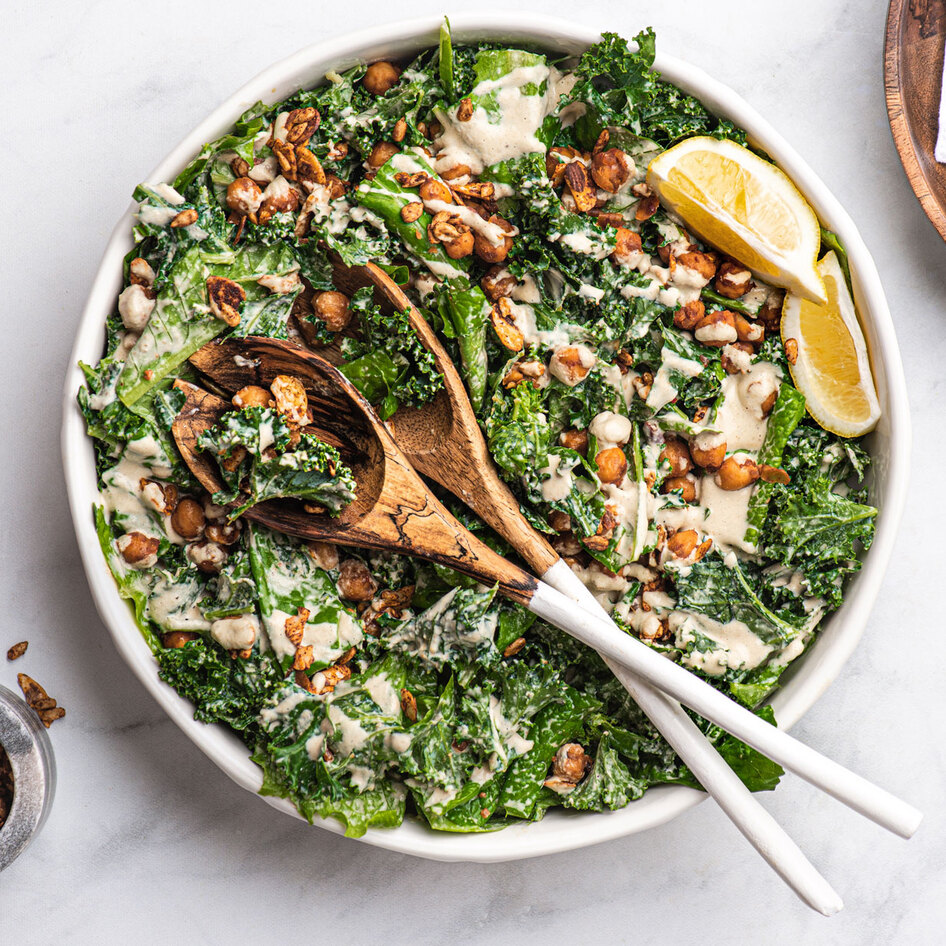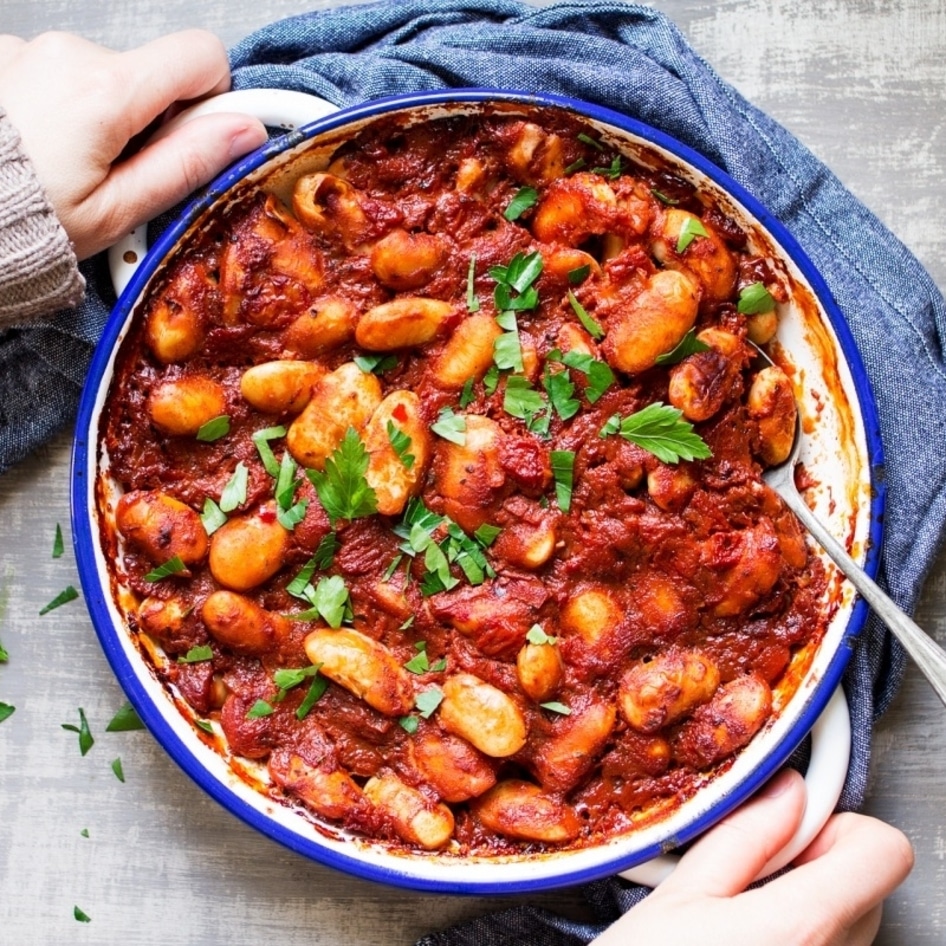Mastering a green sauce can help you take your vegan cooking game to the next level. Let’s be honest, every plate looks better with a vibrant emerald-colored drizzle, and it makes the food taste even more delicious, too.
There are many, many different types of green sauce. The clue is in the name, but to qualify in this category, a sauce just needs to be green, and it’s usually uncooked. There are a few green sauces of world cuisine that are considered the best, most versatile, and most delicious of the green sauces. There’s green chutney from India, for example, as well as salsa verde from Italy and chermoula from Morocco. Green goddess salad dressing from California also counts as a green sauce. But here, we’re focusing on three of the most popular green sauces: pesto, chimichurri, and gremolata.
Find out more about what they are below, as well as how to cook with them, and how to use them in recipes.
The benefits of learning to cook with green sauce
Cooking with green sauce can give you more than an aesthetically pleasing meal. These sauces, which are usually made with green vegetables and herbs, like parsley and basil, are nutrient-rich. Plus, they are also packed with fresh, herbaceous flavor, and can help to enhance the overall taste of a dish.
Learning to master one or two types of green sauce can also help you improve your culinary skills. And that’s because they’re incredibly versatile and customizable; they can be used in dressings, marinades, and dips, and once you’ve learned the base recipe, you can adjust ingredients and proportions to complement your favorite dishes.
The differences between gremolata, chimichurri, and pesto (plus recipes!)
Keep reading to find out more about gremolata, chimichurri, and pesto—the holy trinity of the green sauce world.
BECOME A VEGNEWS VIP: Get exclusive product deals, freebies, and perks galore!
1 Gremolata
A classic Italian condiment, gremolata is fresh, zesty, and versatile. It’s typically made with three main ingredients: finely chopped fresh parsley, minced or grated garlic, and lemon zest. And for that reason, it’s incredibly easy to make—all you need to do is combine them in a bowl and you’re done.
Gremolata is often served with meat or seafood (find some of our favorite plant-based seafood recipes here), but it is also often added to soups and stews right before serving. Plus, it works well as a topping for light pasta dishes and roasted vegetables, too.
Try it in a recipe: Vegan Potato Leek Soup With Broccoli Gremolata
2 Pesto
Another Italian favorite, pesto is one of the most famous green sauces, and for good reason. It’s thick and aromatic, and it goes with everything from pasta to pizza to salad. It even works well on its own as a simple dip.
Unlike gremolata, there’s a little bit more to pesto than mixing up three ingredients. Its key components are fresh basil, garlic, pine nuts, olive oil, and parmesan cheese, and it’s usually crushed together using a mortar and pestle.
Because parmesan is made with rennet, pesto isn’t vegan (or vegetarian, for that matter) in its traditional format, but it’s easy to find plant-based versions made without cheese on the shelves. Or, alternatively, you can make your own!
Try it in recipes: Two-Step Oil-Free Vegan Kale Pesto Pasta; Vegan Spicy Cauliflower Wings With Pesto Dipping Sauce; and Lemony Pumpkin Seed Pesto Pasta
3 Chimichurri
Chimichurri is different from pesto and gremolata in many ways. For one, it’s not from Italy, but Argentina. It’s also made with red pepper flakes, which add a kick of heat, as well as vinegar, which brings some acidity to the sauce.
However, similar to its green sauce cousins, chimichurri also contains a blend of fresh herbs (usually parsley), as well as garlic and olive oil, too. To make chimichurri, the ingredients are finely chopped and then mixed together. Some versions use a food processor for convenience, while others prefer a more rustic, hand-chopped texture.
Chimichurri is often served with grilled meat (vegan meat works just as well!), but it also tastes delicious with roasted vegetables and as a dipping sauce, too.
Try it in recipes: Vegan Chimichurri Roasted Sweet Potato Bowl; Sizzling Zucchini With Tzatziki and Vinegary Chimichurri; and Vegan Cauliflower Steaks With Chimichurri Sauce
For more on vegan cooking, read:
JUMP TO ... Latest News | Recipes | Guides | Health | Subscribe

